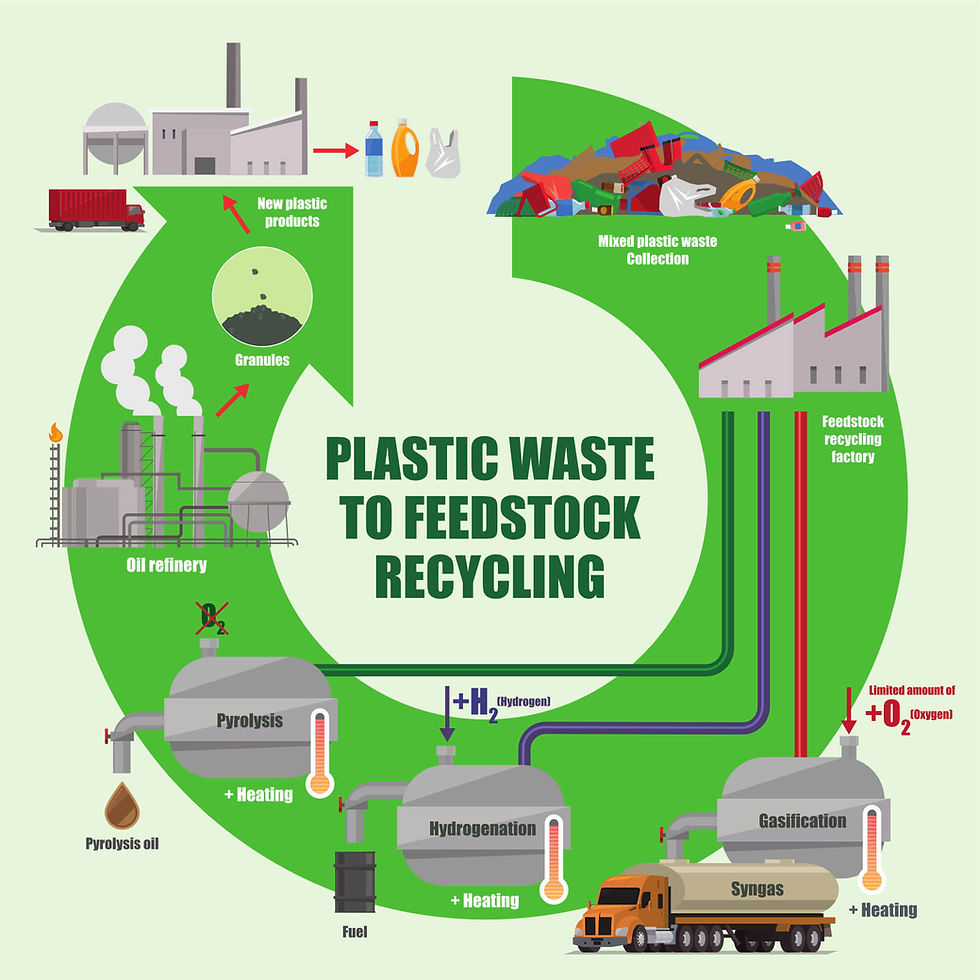Economic and Environmental Advantages of EcoStyrene™
- cemnar0
- Jul 17, 2025
- 1 min read
Updated: Jul 28, 2025

Introduction
EcoStyrene, Sulzer’s advanced chemical recycling technology, is redefining how industries handle contaminated polystyrene waste. By transforming even severely contaminated PS into pure styrene monomer, EcoStyrene delivers impressive gains in both sustainability and operational economics helping operators and brands meet increasing recycling targets and regulatory demands.
Key Economic Benefits
Broad Feedstock Acceptance: Processes low-value, contaminated PS (with food residues, flame retardants) that would otherwise go to landfill or incineration.
High-Purity Output: Yields styrene monomer that reaches ASTM grades for food contact applications and enabling “waste-to-virgin” closed-loop recycling.
Environmental Impact
Increased Recycling Rates: Unlocks access to polystyrene fractions previously considered unrecyclable, significantly boosting PS recycling rates in multiple regions.
Reduced Landfill and Incineration: Converts contaminated PS waste into valuable feedstock, diverting large volumes from landfill and lowering environmental impact.
Lower Carbon Footprint: Energy-efficient process design reduces emissions per ton of recycled material, supporting both corporate sustainability and legislative requirements.
Resource Conservation: By closing the loop, EcoStyrene reduces reliance on fossil-based virgin styrene and supports a circular materials economy.
Summary Table: Key Advantages
Advantage | Economic/Environmental Impact |
Handles contaminated PS waste | Expands usable feedstock, raises recycling rates |
Pure styrene output | Enables food-grade and high-value applications |
Low energy/streamlined process | Reduces operational spend and emissions |
Integrable design | Suitable for upgrades and new plant investments |
Conclusion
EcoStyrene stands out by enabling the recycling of polystyrene waste streams once considered impossible.
Its blend of economic and environmental advantages helps the plastics value chain meet recycled-content mandates, reduce operational costs, and significantly minimize the lifecycle footprint of polystyrene products propelling the industry toward a truly circular future.



